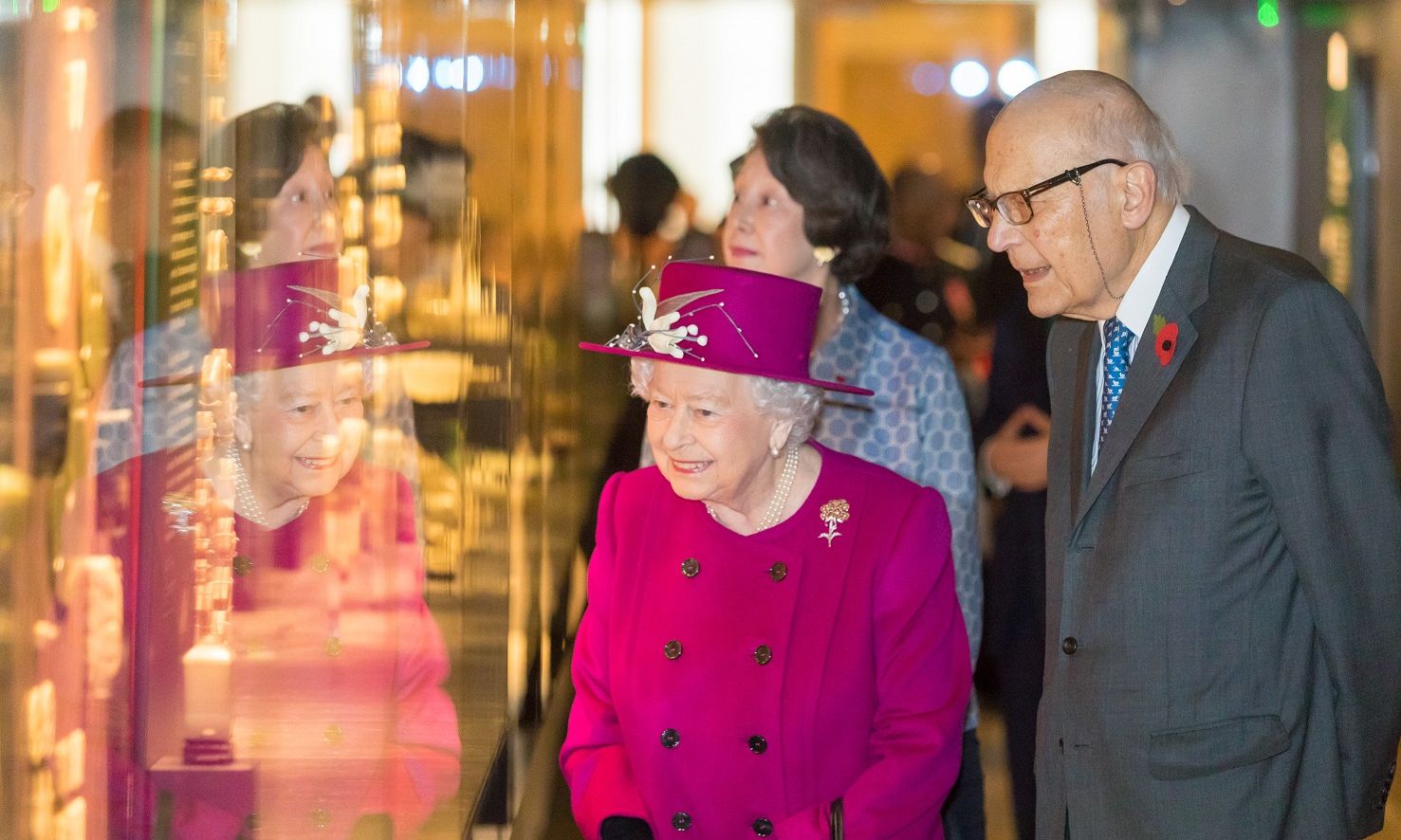The late Queen Elizabeth II with Joseph Hotung at the British Museum in 2017 Photo: © Benedict Johnson
In 2022 the British Museum hailed a bequest of Chinese antiquities by the late Hong Kong businessman, philanthropist and former trustee Joseph Hotung as one of the most generous gifts in its three centuries of history. The museum’s annual report for 2023-24, published at the end of July, has now disclosed how much that bequest was worth: £123m.
Hotung died in December 2021 and bequeathed the museum a celebrated collection of 246 jades spanning all the major Chinese dynasties (many of which were already displayed on long loan), 15 fine examples of early blue-and-white porcelain from the late Yuan and early Ming dynasty, 24 bronzes and other metalwork pieces, a Neolithic pottery jar and a dry lacquer head of a Bodhisattva. Nearly all these objects are on display in the Selwyn and Ellie Alleyne Jade Gallery and the Sir Joseph Hotung Gallery of China and South Asia, the latter named for Hotung’s funding of two renovations, in 1992 and in 2017.
A blue-and-white porcelain from the Hotung Collection in the British Museum Photo: British Museum
Although the Hotung bequest was announced in 2022, it could only be recognised in the museum’s 2023-24 financial accounts after probate was granted for Hotung’s estate. The £123m valuation of the bequest was calculated from antique dealers’ earlier valuations of the individual items in the gift. This extraordinary sum raised the total of the British Museum’s donations and legacies for the financial year to £138.5m, five times the £27.6m figure for 2022-23. By comparison, the museum spent £700,000 of its own funds on acquiring objects for the collection in 2023-24.
Hotung served on the board of the British Museum from 1994 to 2004. In a memorandum to the UK parliamentary select committee for culture in 2000, he presciently described how diminished public funding for national museums would make them more reliant on private donors to support acquisitions. “In the present situation, in which museums and galleries in the United Kingdom receive subventions woefully inadequate to fund any meaningful acquisition policy, they will have to depend increasingly on the gifts and bequests of private donors to expand their collections,” he wrote.
Born into one of Hong Kong’s wealthiest families, Hotung spent much of his career in real estate and finance, relocating to the UK in the 1990s. His passion for collecting Chinese antiquities and particularly archaic jade was sparked in the 1970s by the impulse purchase of a pair of Qing dynasty jade bowls (part of the British Museum bequest) while waiting to catch a flight in San Francisco. Though he kept a low profile, he became a leading patron of the arts, serving as the first chair of the Hong Kong Arts Development Council and on the boards of the Metropolitan Museum of Art and Asia Society in New York as well as the British Museum. He was knighted in 1993 for his philanthropy, which extended to medicine and healthcare, environmental conservation, human rights and education.
In addition to Chinese art, Hotung’s eclectic collection also included European paintings by the likes of Frans Hals, Manet and Turner, French silver and English furniture. Sotheby’s dispersed 475 lots through a series of auctions in London, Hong Kong and online in 2022 that brought in a combined total of £103.3m, more than double the presale estimates.

